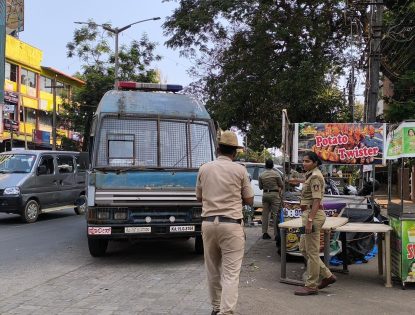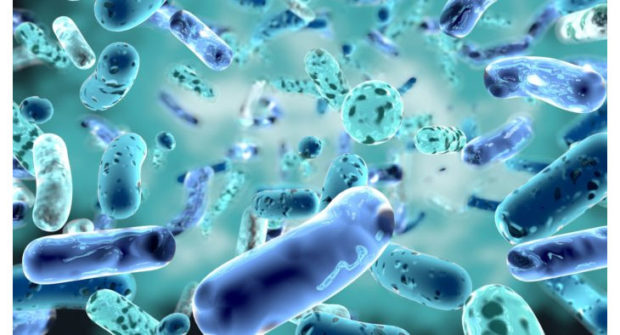
Imbalance in gut bacteria linked to ‘long Covid’ infection risk, says study
PTI, Jan 13, 2021, 10:46 AM IST

Credit: iStock Photo
New Delhi: Imbalances in the type and volume of bacteria found in the gut may be associated with the risk of ‘long Covid’, the symptoms of which last for weeks or months beyond the initial illness, according to an observational study.
The research, published in the journal Gut, found that the variety of bacteria in the gut, known as the microbiome, may influence the severity of Covid-19 as well as the level of the immune system response to the infection.
The researchers from the Chinese University of Hong Kong also found that imbalances in the make-up of this microbiome may be implicated in persisting inflammatory symptoms, known as ‘long Covid’.
They noted that Covid-19 is primarily a respiratory illness, but the evidence suggests that the gut may also play a role.
“In light of reports that a subset of recovered patients with Covid-19 experience persistent symptoms such as fatigue, breathlessness and joint pains, some over 80 days after onset of symptoms, we posit that the dysbiotic gut microbiome could contribute to immune-related health problems post-Covid-19,” the researchers said.
“Bolstering of beneficial gut species depleted in Covid-19 could serve as a novel avenue to mitigate severe disease, underscoring the importance of managing patients’ gut microbiota during and after Covid-19,” they noted.
The researchers noted that the gut is the largest immunological organ in the body and its resident microbes are known to influence immune responses.
The team, therefore, wanted to find out if the bacteria might also affect the immune system response to Covid-19 infection.
They obtained blood and stool samples and medical records from 100 hospital inpatients with laboratory-confirmed Covid-19 infection between February and May 2020, and from 78 people without Covid-19 who were taking part in a microbiome study before the pandemic.
The severity of Covid-19 was classified as mild in the absence of x-ray evidence of pneumonia and moderate if pneumonia with fever and respiratory tract symptoms were detected.
The disease was considered severe if patients found it difficult to breathe normally, and critical if they needed mechanical ventilation or experienced organ failure requiring intensive care.
To characterise the gut microbiome, 41 of the Covid patients provided multiple stool samples while in hospital, 27 of whom provided serial stool samples up to 30 days after clearance of SARS-CoV-2, the virus responsible for Covid-19.
Analysis of all 274 stool samples showed that the make-up of the gut microbiome differed significantly between patients with and without Covid-19, irrespective of whether they had been treated with drugs, including antibiotics.
The researchers found that Covid patients had higher numbers of Ruminococcus gnavus, Ruminococcus torques and Bacteroides dorei species than people without the infection.
They also had far less microbiome species that can influence immune system response, such as Bifidobacterium adolescentis, Faecalibacterium prausnitzii and Eubacterium rectale.
Fewer numbers of F. prausnitzii and Bifidobacterium bifidum were particularly linked with infection severity after taking into account the antibiotic use and patient age, according to the researchers.
The numbers of these bacteria remained low in the samples collected up to 30 days after infected patients had cleared the virus from their bodies, they said.
Covid-19 infection prompts the immune system to produce inflammatory cytokines in response.
In some cases, this response can be excessive and lead to a ‘cytokine storm’ which causes widespread tissue damage, and multiorgan failure.
Analysis of the blood samples showed that the microbial imbalance found in the Covid patients was also associated with increased levels of inflammatory cytokines and blood markers of tissue damage.
This suggests that the gut microbiome might influence the immune system response to Covid-19 infection and potentially affect disease severity and outcome, the researchers said.
The team noted that the study is observational, and as such, cannot establish cause, adding the gut microbiome varies widely among different populations.
Therefore, the changes observed in the research may not be applicable to other Covid patients elsewhere, they said.
Udayavani is now on Telegram. Click here to join our channel and stay updated with the latest news.
Top News
Related Articles More

Surgical options for Parkinson’s disease

Breast cancer to cause a million deaths a year by 2040: Lancet commission

Will to resist temptations, achieve goals more trustworthy than using apps, study finds

Govt directs e-commerce firms to remove drinks, beverages from ‘health drinks’ category

Experiencing abuse, neglect as child linked to lifelong ill-health: Study
MUST WATCH
Latest Additions

HC directs implementation of measures suggested by expert panel to improve medical services in Delhi

Jayaprakash Hegde calls for action on unfulfilled promises by central govt

Mangaluru: BJP, Cong workers engage in verbal spat near Sai baba temple

Delhi HC acquits two men convicted of murder over two decades ago

Nadda credits Modi government for successful integration of North East with rest of India

























